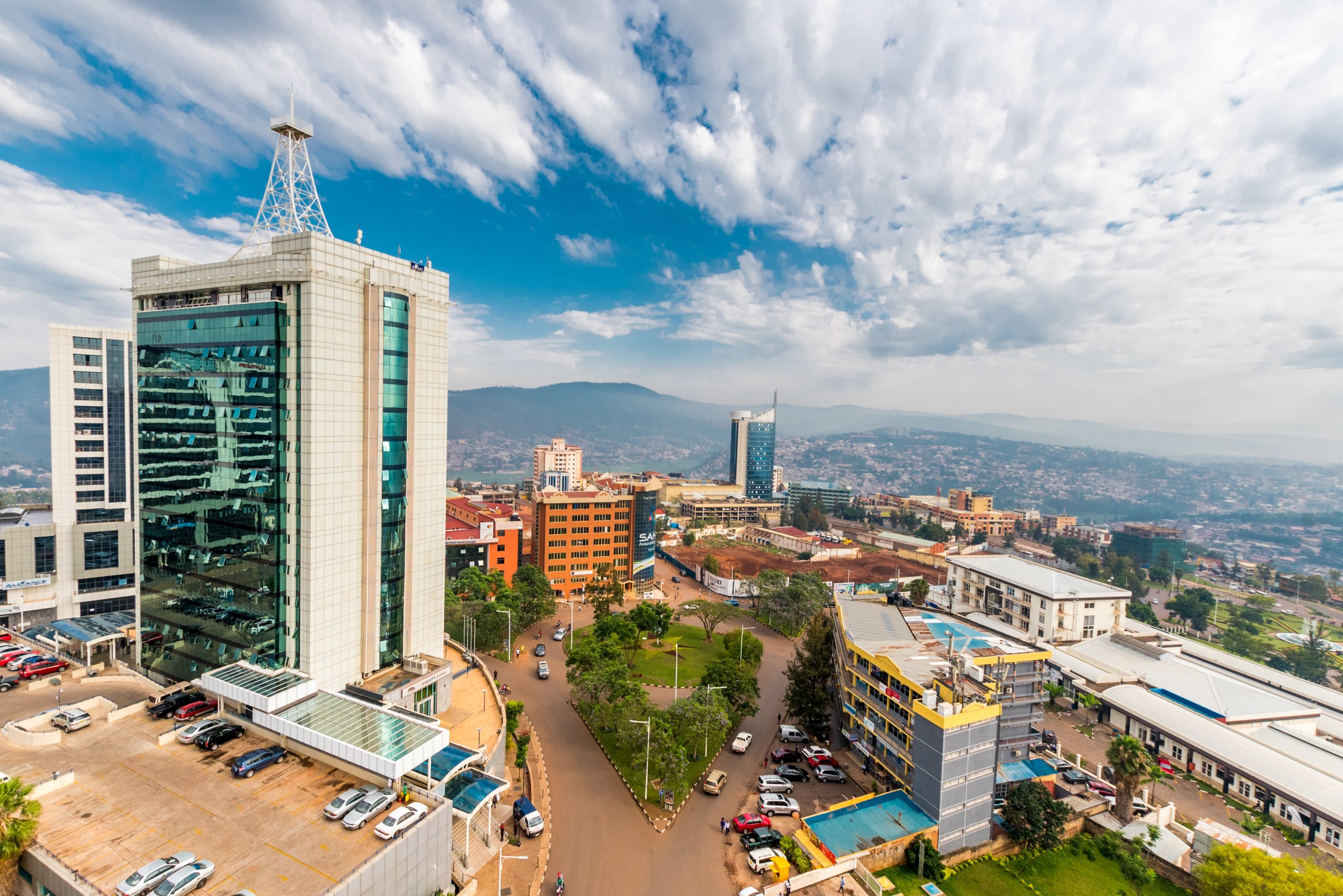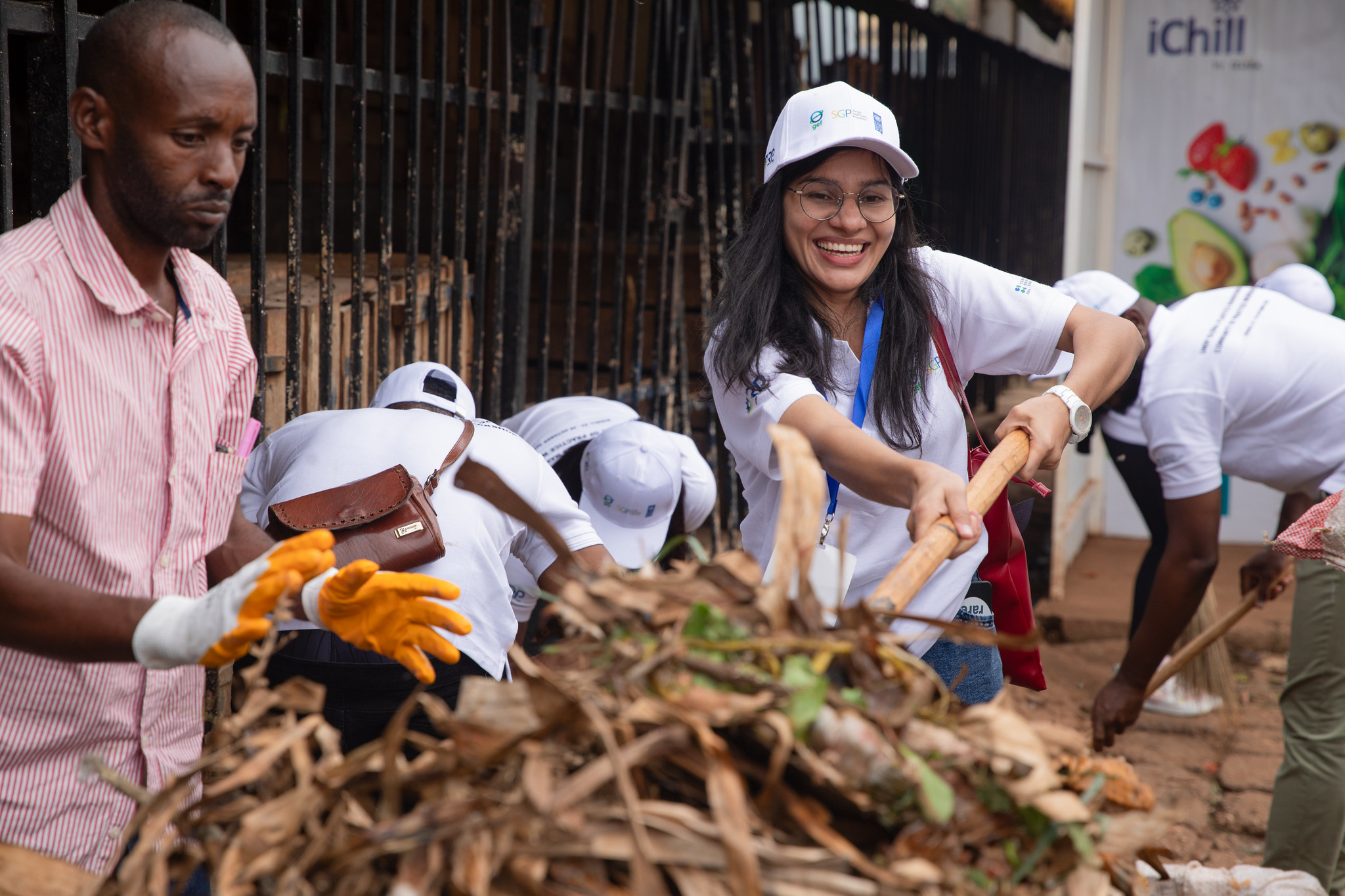Umuganda: Rwanda’s audacity of hope to end plastic pollution
November 15, 2023

One of the first countries to ban single-use plastics, Rwanda has embraced a whole-of-society commitment to green, inclusive and resilient growth.
Since 1994, Rwanda has shown resilience and undergone a transformational change throughout all aspects of its society. The country ranks among the top in the world with regards to GDP growth rate, ease of doing business and low corruption and is renowned for its clean streets, with its capital city, Kigali, hailed as the cleanest city in Africa. The cleanliness is anchored in a whole-of-society and whole-of-government commitment to green, inclusive and resilient growth.
In 2008, Rwanda became one of the first countries in the world to ban single-use plastic bags and bottles. The ban is not an isolated law. Upon arrival to Kigali, one can immediately see that it is anchored in deep commitment, as it entails citizen engagement to maintain cleanliness, reduce pollution and deliver plastic alternatives to make the vision a reality. Rwanda is the global leader, along with Norway, in a High Ambition Coalition aiming to raise ambition to develop a Global Treaty to End Plastic Pollution by 2040.
Seeing is believing. Inspired by Rwanda’s transformation, UNDP organized its first Global Plastics Community of Practice conference, with a focus on behaviour change, in October 2023 in Kigali. This brought together more than 50 practitioners from more than 30 countries, including UNDP experts, governments, private sectors, academia and civil society organizations. They came to experience Rwanda’s waste management, provide ideas and thoughts on how UNDP can support countries to tackle plastic pollution, and exchange experiences and lessons learned.
So, what have we learned about Rwanda’s plastic waste management?
Government commitment: Policies and implementation
As early as 2008, Rwanda introduced the ban of single-use plastic bags, which then expanded to include other singe-use plastic products. The implementation has been rigorous. From the beginning a person could be fined US$60 for carrying a single-use plastic bag, which was critical to raise public awareness of plastic pollution and foster the mentality of mindful use of plastics and disposal of waste. It has drastically reduced littering of plastic waste in Rwanda.
Private sector: Privatized home-based waste collection
Walking on the streets of Kigali, one will be surprised to find no plastic litter but also no trash bins. Unlike in many cities around the world, where streets are lined with trash bins often overfilled or overturned, waste is separated at the household level and is collected by private companies paid by households. In Kigali, fifteen private waste collection companies are providing waste collection services for households and competing for government contracts to clean up public spaces. Such waste collection systems are working and contribute to keeping the country clean.
In many developing countries, one great challenge to overcome is the prohibitively high cost of waste collection burdening municipal budgets. In Rwanda, the cost is shared between governments and households that pay varying waste collection fees based on income level.

Participants at the Global Plastics Community of Practice conference visited a UNDP-supported plastic recycling facility to experience Rwanda's waste management transformation.
Umuganda: Whole-of-society participation
Awareness raising is the first step to behaviour change. What makes Rwanda unique is its awareness raising campaign and action-based community programme called Umuganda, meaning communities coming together. Since 1995, the government institutionalized one of several now famous Rwandan Home Grown Solutions, “Umuganda”, to mandate people aged 16 to 65 to participate in community service on the last Saturday of every month, nationwide.
According to behaviour change theory and research, it takes time and repetition to change human behaviours. With Umuganda’s fixed time and date every month, repeated for 28 years, the plastic ban was integrated into the cumulative behaviour change of a nation which has contributed to its success. The Umuganda monthly works are decided locally by the local leaders and citizens in that community, what projects the community wishes to improve, build and clean. At the same time, it has strengthened social cohesion and resilience among community members.
Further improvement: Call for environmental and safety monitoring
The conference participants visited a plastic recycling facility supported by UNDP, World Bank and national banks’ commercial loans. The facility employs 70 people and has 14 recycling machines. Plastics are collected, washed and heated to make new pellets. While recognizing the positive strides in sustainable practices, it is crucial to maintain consistent and vigilant monitoring of the environmental and human health impacts associated with such facilities to see how persistent organic pollutants (POPs), including dioxin and furan, can be combatted to reduce the impact on people and the planet.
Audacity of hope
At a time when conflicts and divisions seem to permeate around the world, it is challenging to stay positive and hopeful for peace and prosperity. There is a lot Rwanda can offer to the world, from its waste collection and clean-up to community reconciliation through collective service.
Rwanda is a light for the people and communities around the world to look to: if Rwanda can reconcile, recover and keep its environment clean, others can too. It is a proof of concept that can be replicated.
Rwanda shows the world the audacity of human hope towards a future free from plastic pollution. With commitment, hard work and collective actions, we can and must make it a reality.

 Locations
Locations





